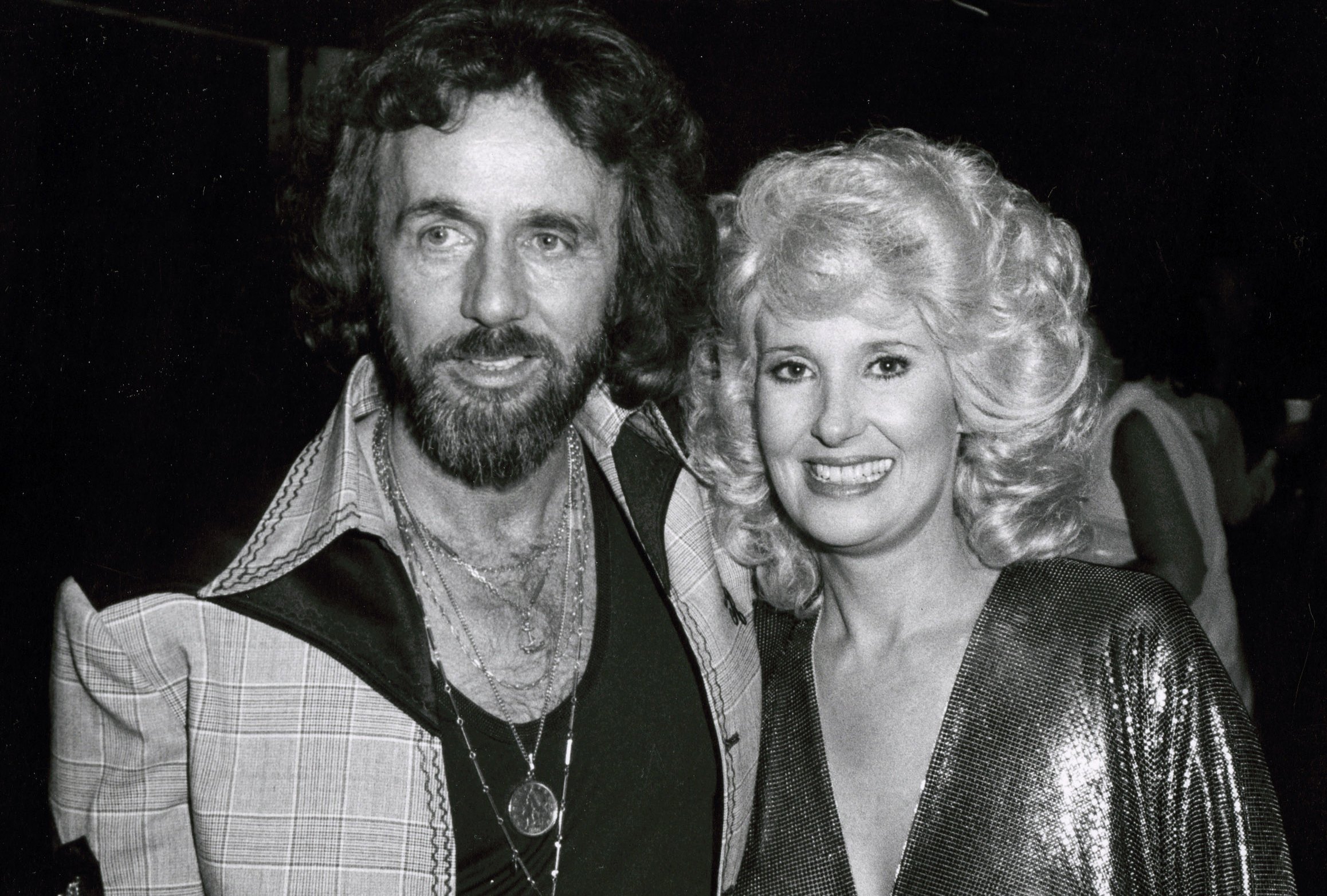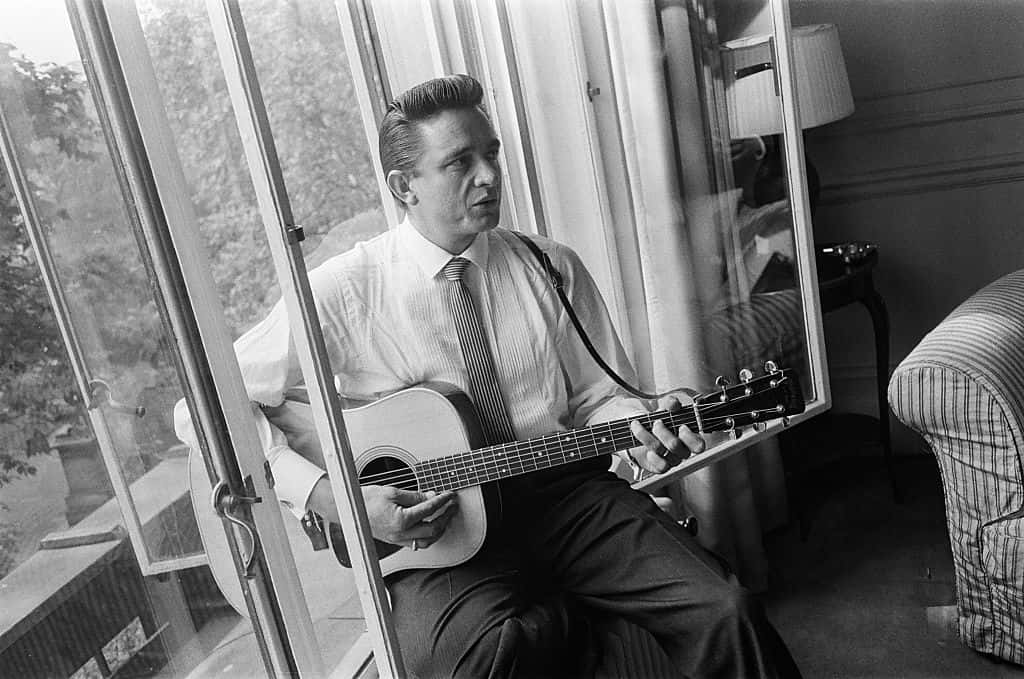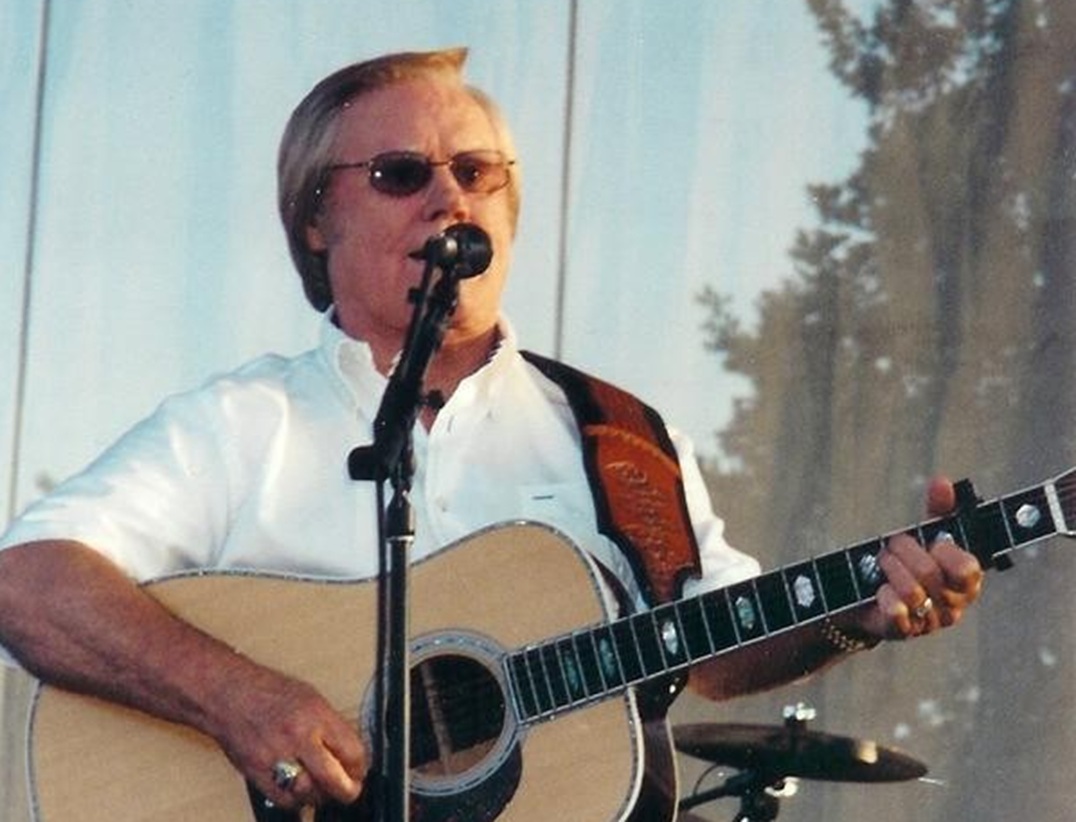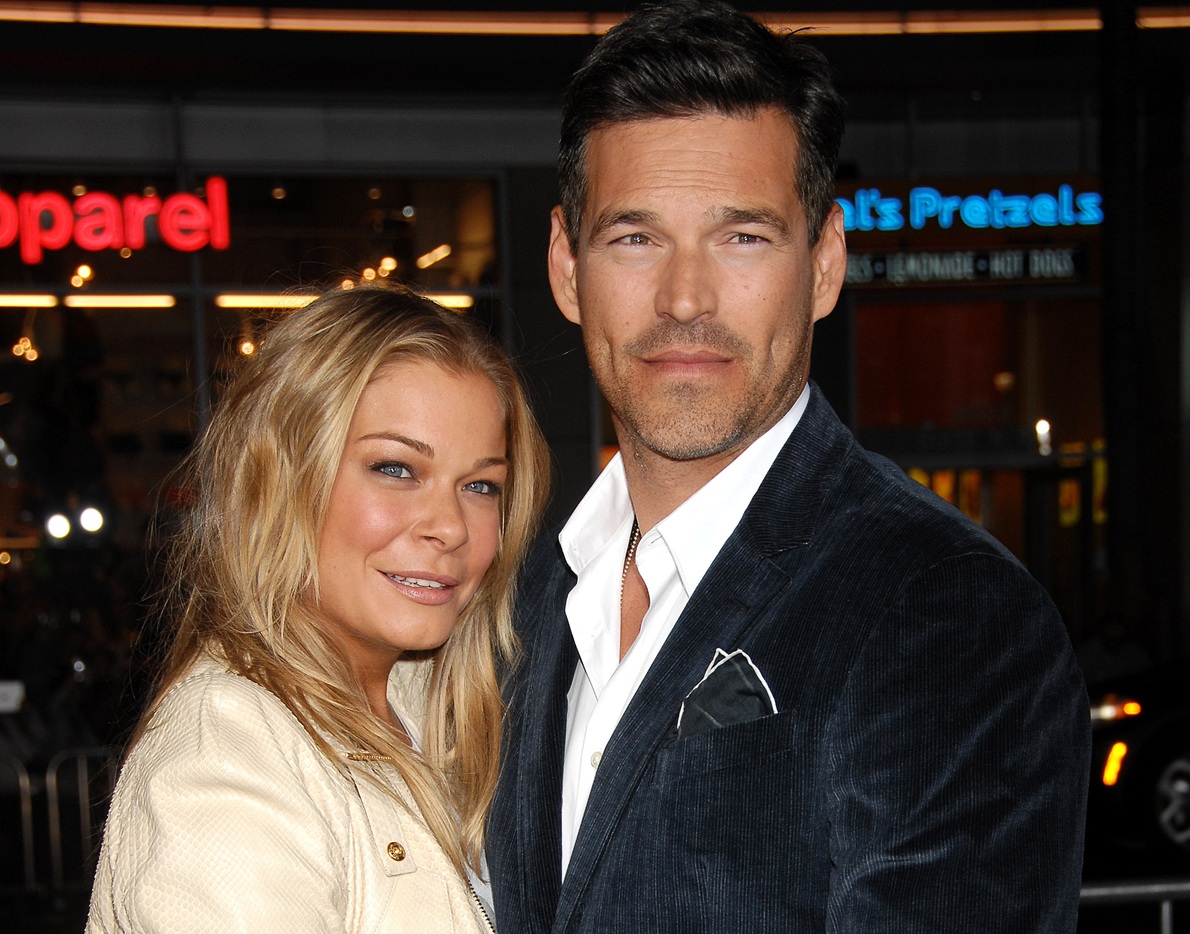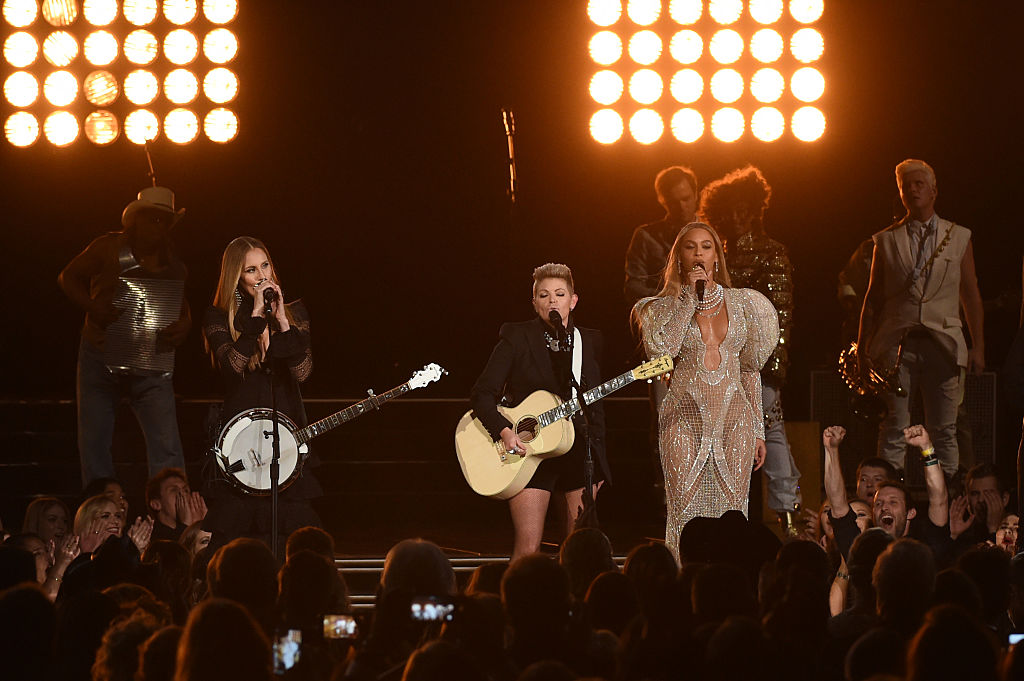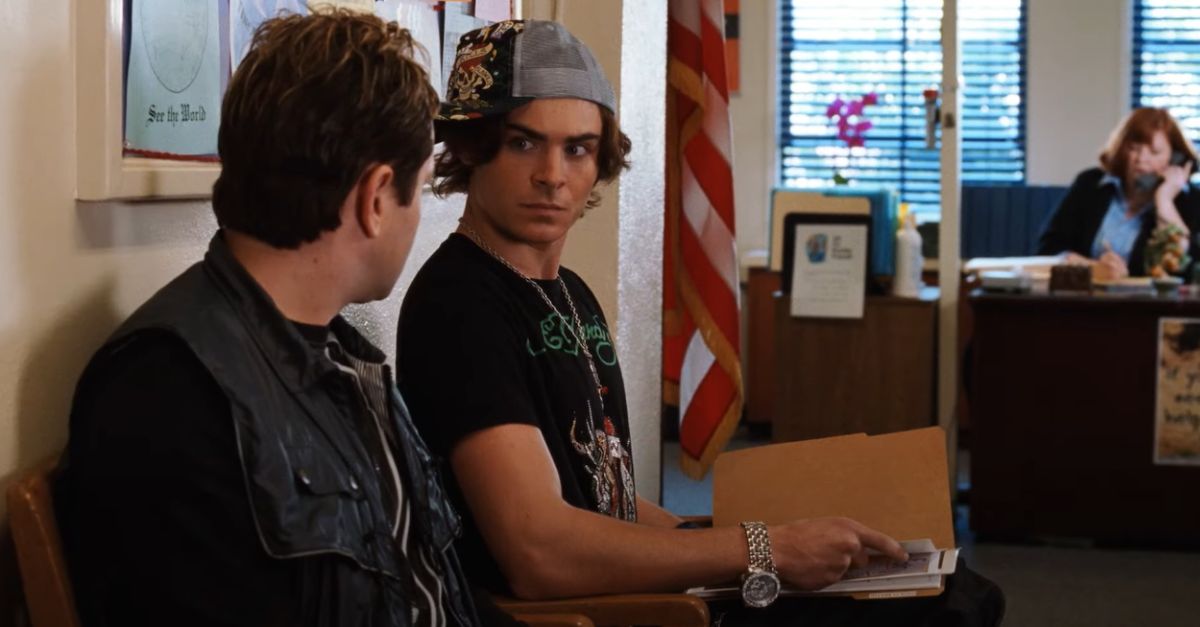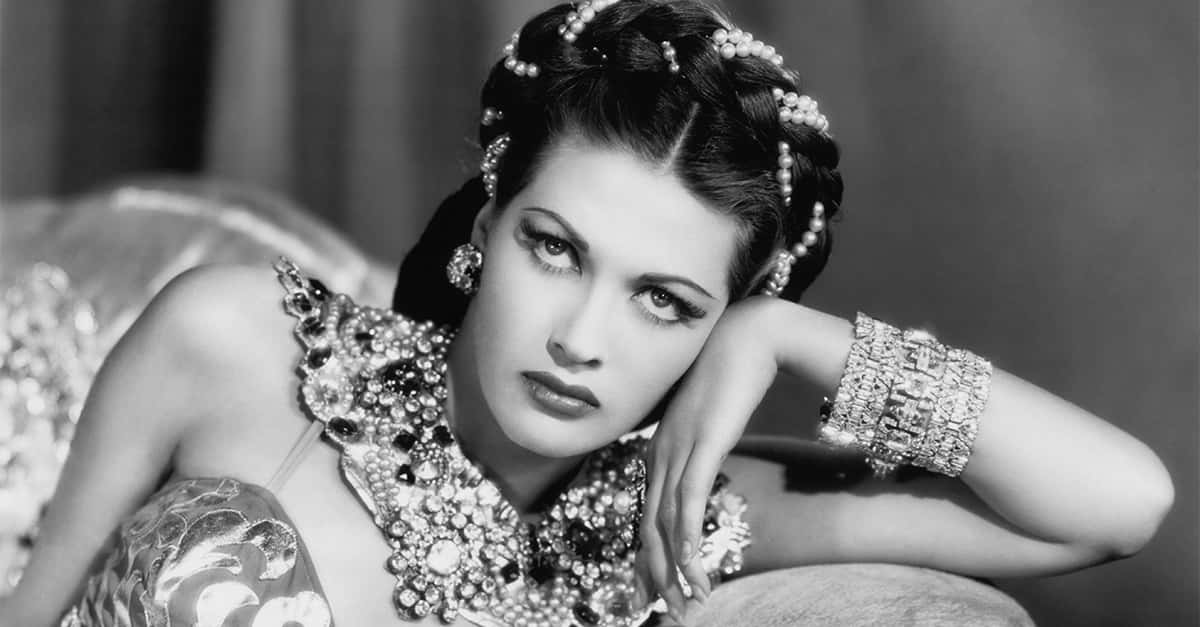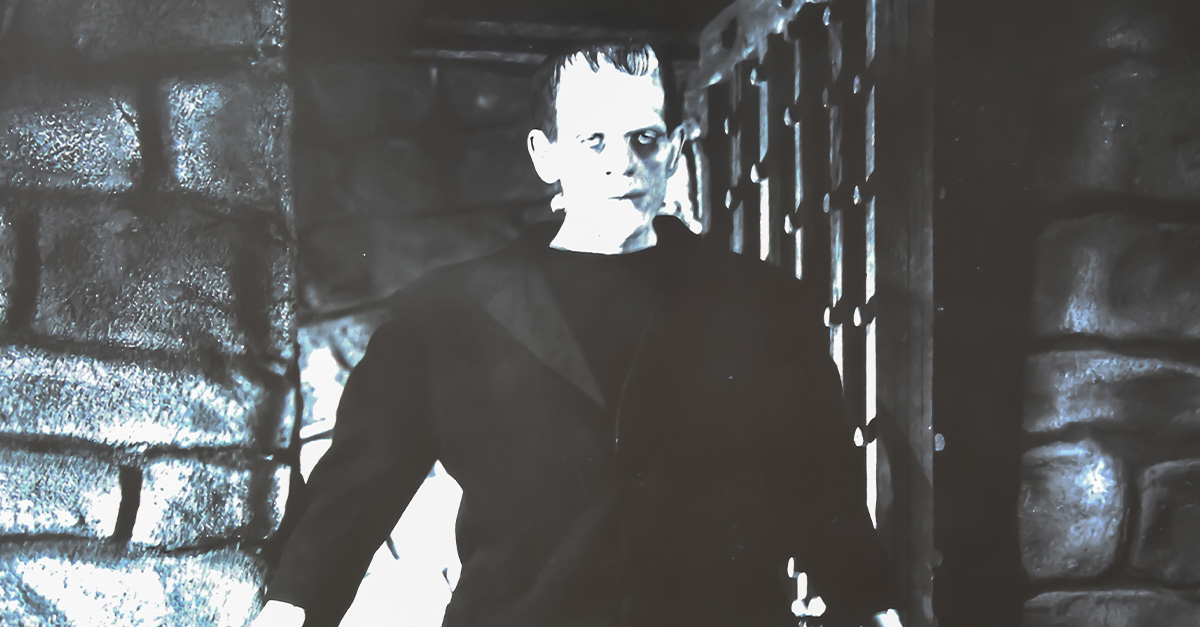They Fell Into A Burning Ring Of Fire
While the world of country music might seem like the Wild West, it can actually be a pretty buttoned-up space—but as these artists learned (the hard way), it’s not always easy to walk the line. All it takes is one wrong move and you end up in the middle of a swirl of disturbing controversy.
Read on for country music’s wildest controversies—from Tammy Wynette’s supposed “kidnapping” to the explosive performances that rocked country’s biggest night.
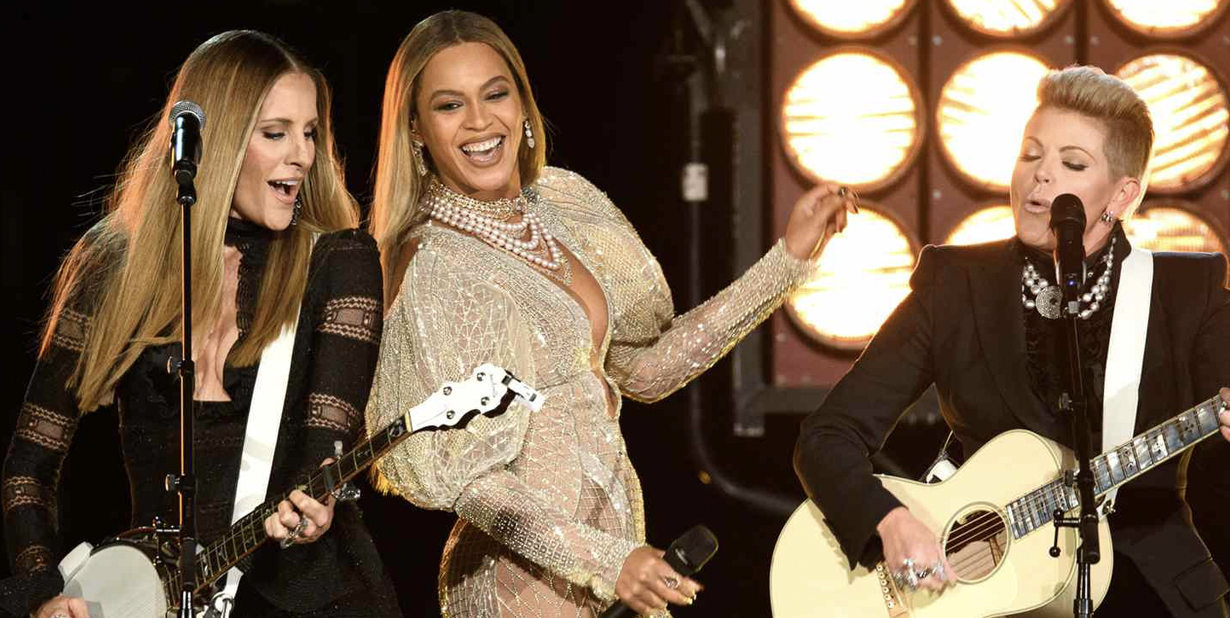
Tammy Wynette’s “Kidnapping”
In 1978, a news report about Tammy Wynette shocked her fans: An unknown assailant had beaten and kidnapped the singer while she was shopping at a Nashville mall. Wynette claimed that the abductor had dumped her off outside of the city when he was through with his physical attacks on her. Her injuries included a broken cheekbone—but that wasn’t the whole story.
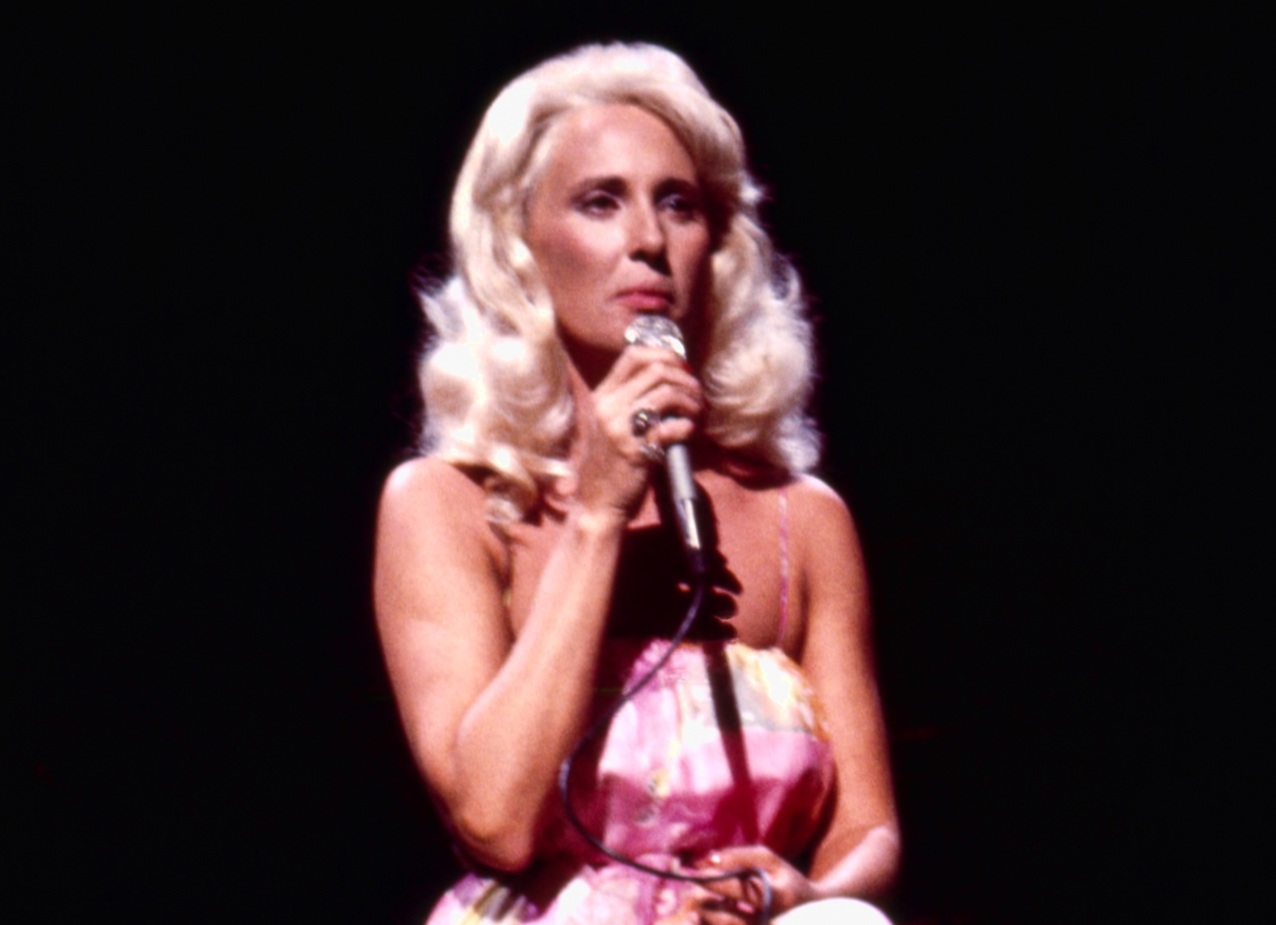 Gene Pugh, CC BY-SA 2.0, Wikimedia Commons
Gene Pugh, CC BY-SA 2.0, Wikimedia Commons
Tammy Wynette’s “Kidnapping” (Cont’d)
Despite the police investigating the report and looking for a culprit, the case was never solved. However, years later, one of her kids revealed the dark truth. Wynette’s daughter claimed that Tammy staged the whole thing to cover up an incident of domestic abuse involving her husband George Richey.
Alan Jackson At The 1994 ACMs
Like him or not, Alan Jackson changed the country music landscape in the 1990s—and he did it while always staying true to his ideals. So, when the producers of the 1994 Academy of Country Music Awards show came to him and proposed he perform his song “Gone Country” to a pre-recorded track instead of playing live, he showed them what he was made of.
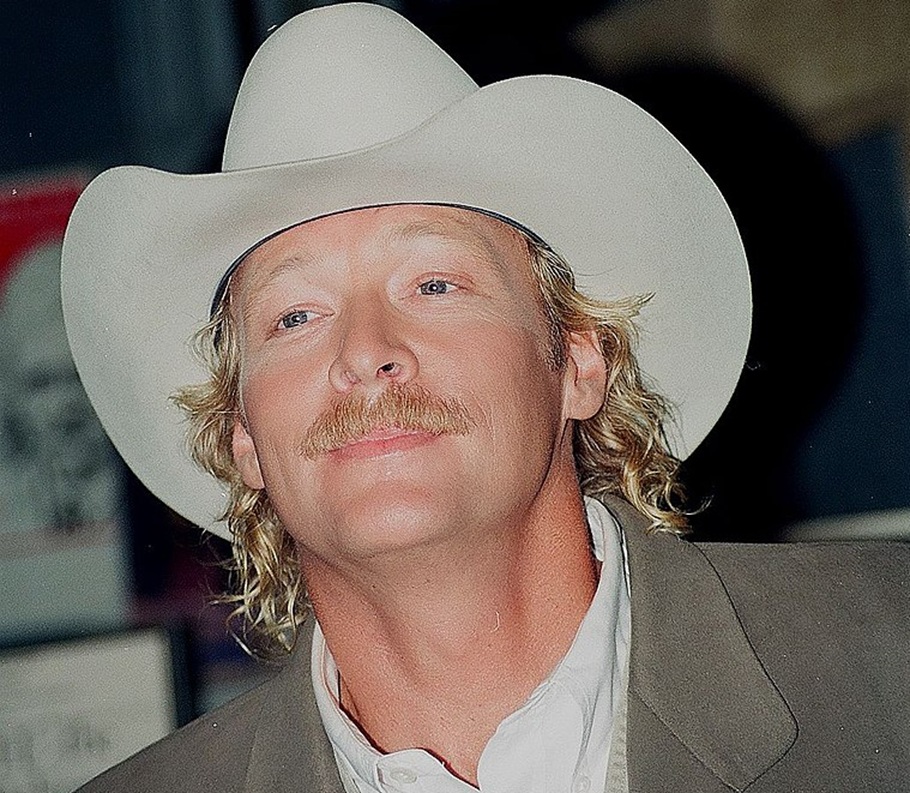 John Mathew Smith, CC BY-SA 2.0, Wikimedia Commons
John Mathew Smith, CC BY-SA 2.0, Wikimedia Commons
Alan Jackson At The 1994 ACMs (Cont’d)
For one thing, country music awards shows can be pretty formal affairs—but Jackson set the tone for the night when he came on stage in a ripped shirt and jeans. On top of that, Jackson told his drummer Bruce Rutherford to play without sticks. As such, lucky viewers had the chance to watch Rutherford flail his arms around as the song played.
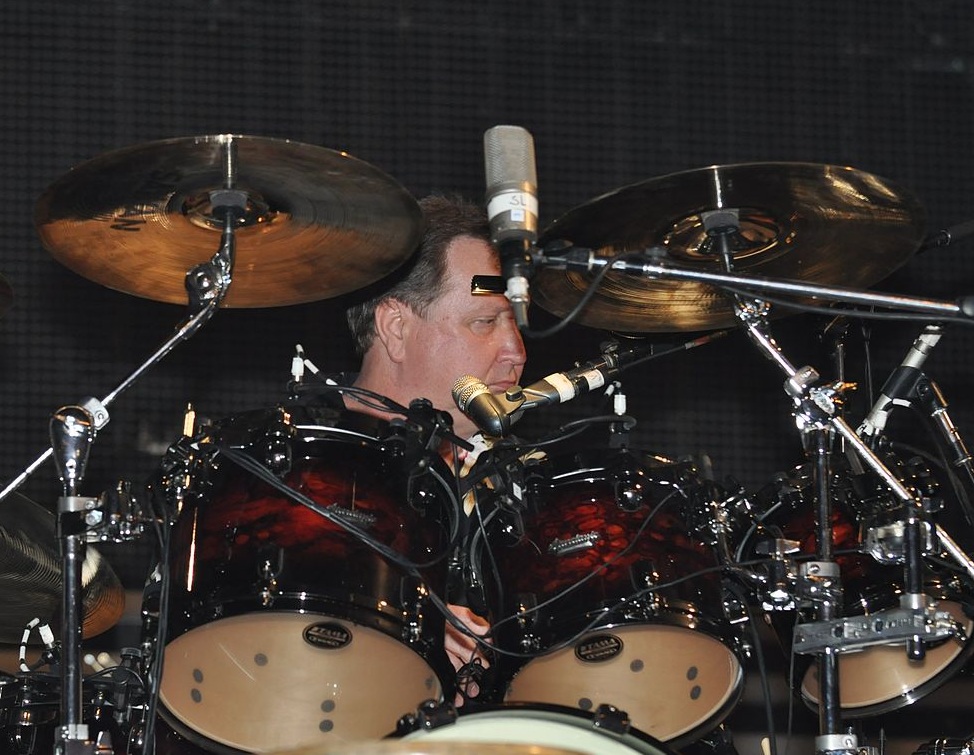 Joe Bielawa, CC BY 2.0, Wikimedia Commons
Joe Bielawa, CC BY 2.0, Wikimedia Commons
Johnny Cash At Folsom Prison
After recording his classic song “Folsom Prison Blues,” Johnny Cash came up with the idea to record a live performance at a prison—but it took him over a decade to get there. In the case of Johnny Cash at Folsom Prison, the unconventional venue wasn’t the problem. In fact, even Ronald Reagan supported the choice. There was just some supremely bad timing—and record label tomfoolery.
Johnny Cash At Folsom Prison (Cont’d)
Just as the album Johnny Cash at Folsom Prison was picking up steam, the assassination of Robert F Kennedy caused the lead single to be pulled from radio stations thanks to the lyrics “I shot a man in Reno / Just to watch him die”.
To add insult to injury, Columbia Records didn’t want to give up on the success the single had built, and forced producer Bob Johnston to remove the line so that they could re-release it, against Cash’s wishes.
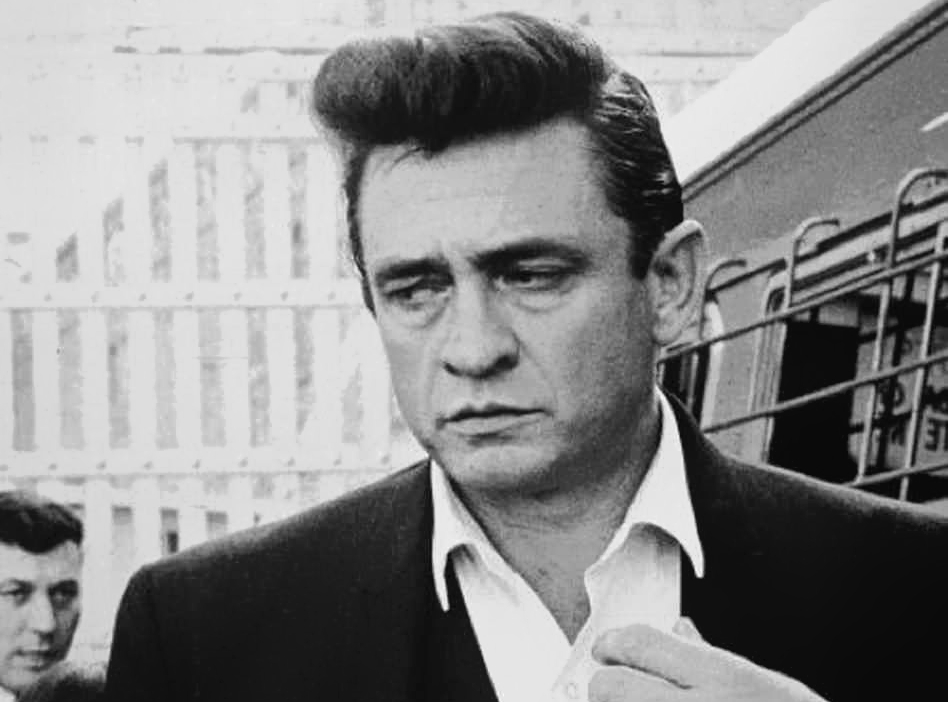 Dillan Stradlin, CC BY-SA 4.0, Wikimedia Commons
Dillan Stradlin, CC BY-SA 4.0, Wikimedia Commons
The Chicks’ Comments About George W Bush
In 2003, the Chicks—then the Dixie Chicks—were performing in London when Natalie Maines addressed the audience and said that they didn’t support the US invasion of Iraq, and that they were ashamed that then-POTUS George W Bush was from their home state of Texas. There was a huge backlash, with the band receiving death threats, and country music stations refusing to play their songs.
Though Maines initially apologized, she later rescinded it—and that wouldn’t be the last controversy for the Chicks.
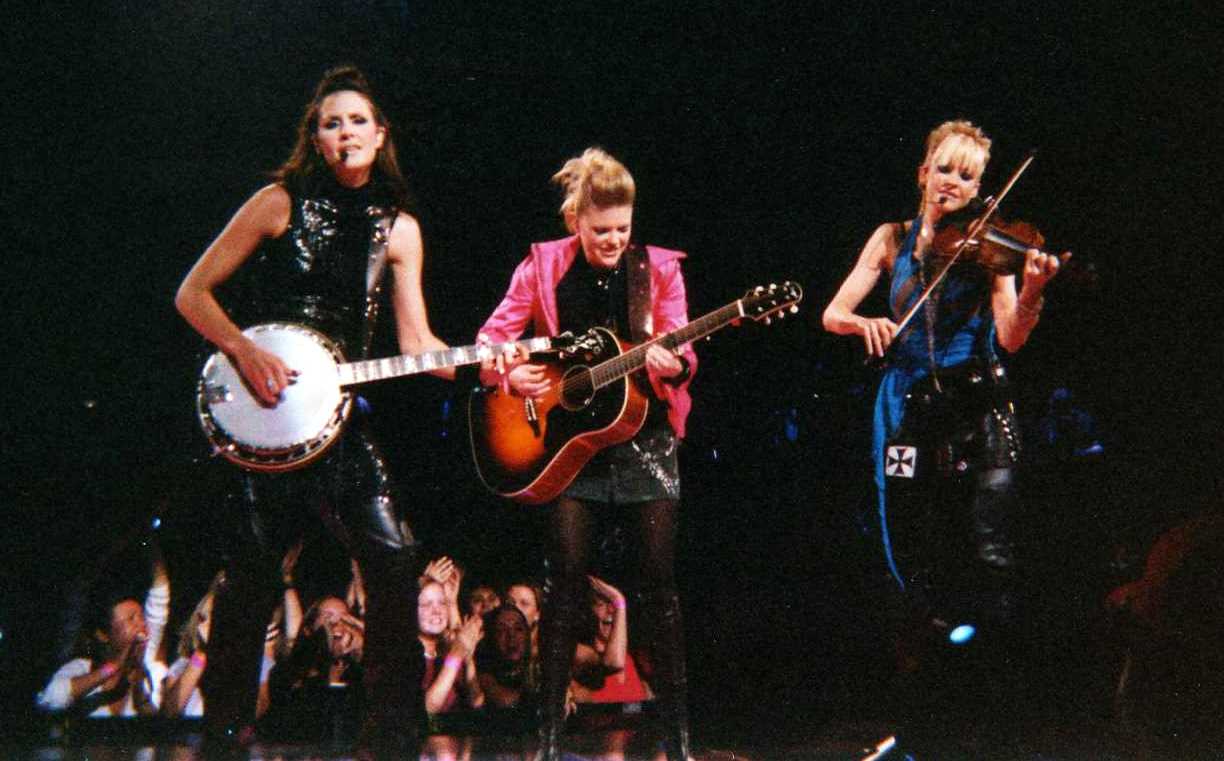 Wasted Time R, CC BY-SA 2.5, Wikimedia Commons
Wasted Time R, CC BY-SA 2.5, Wikimedia Commons
Waylon Jennings Doesn’t Wait For Anyone
Waylon Jennings is the original outlaw country star, along with Willie Nelson. And he lived up to the name on many occasions—including in 1998, when he was scheduled to perform on The Late Late Show With Tom Snyder. Jennings was waiting backstage for his cue when the preceding guest, Dr Laura, went overtime. Instead of playing a truncated set, Jennings simply walked out of the building, leaving producers scrambling to fill the 20 minutes he was supposed to perform.
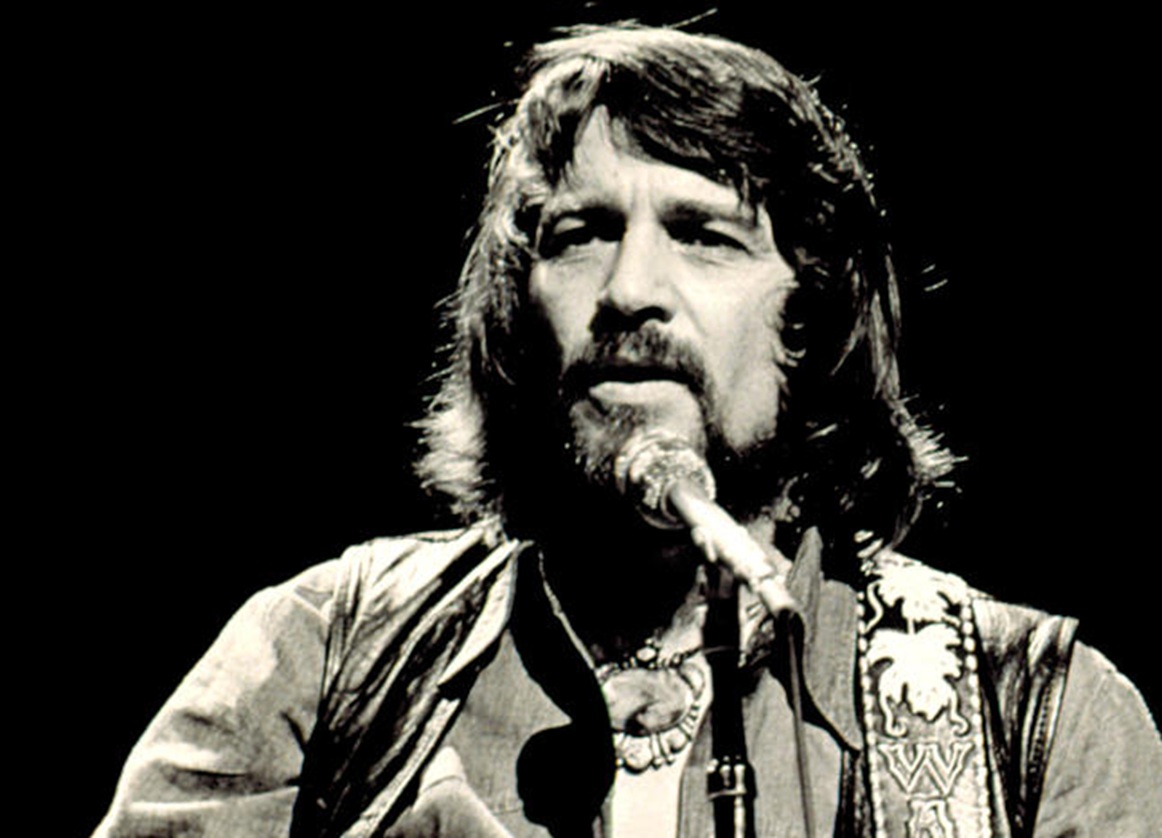 RCA Records, Wikimedia Commons
RCA Records, Wikimedia Commons
Loretta Lynn’s “The Pill”
The country music world isn’t exactly known for being progressive—but Loretta Lynn flipped that reputation on its head with the release of her 1975 song “The Pill,” about birth control. Well, not just about birth control. The song celebrated the freedom that the pill gave to women, with lyrics like “Miniskirts, hot pants, and a few little fancy frills / Yeah, I’m making up for all those years since I’ve got the pill”.
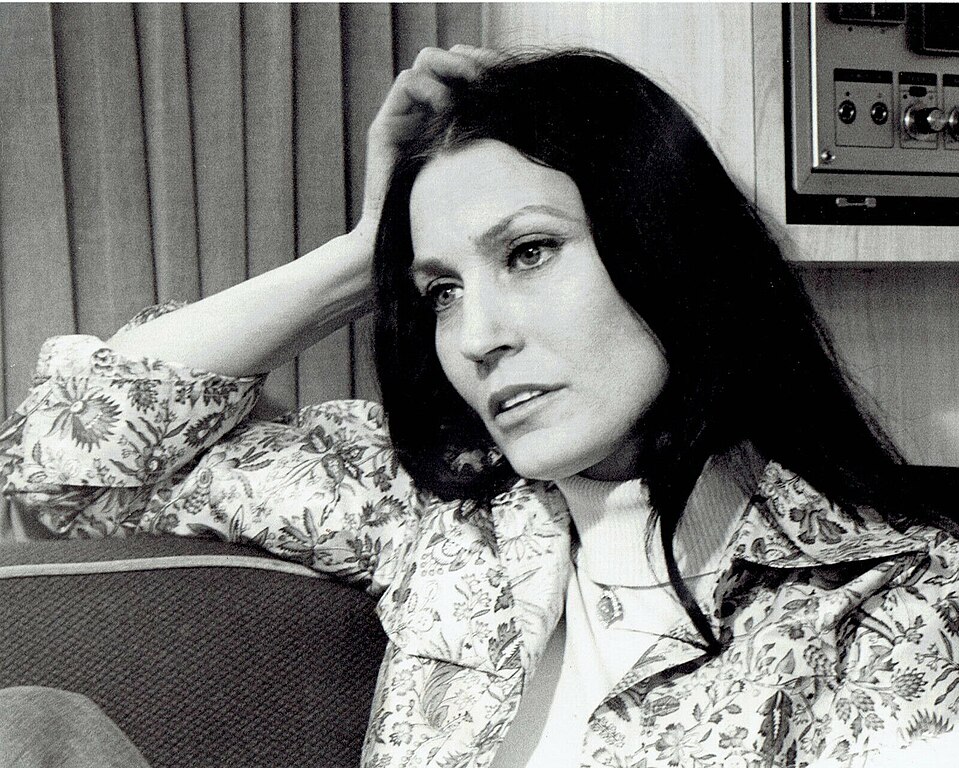 CBS Television, Wikimedia Commons
CBS Television, Wikimedia Commons
Rascal Flatts Lip-Syncing At The 2014 ACMs
Rascal Flatts were slated to perform the lead single from their 2014 album Rewind at the Academy of Country Music Awards that spring—but when they took the stage, something was off. Fans noted that the timing didn’t seem right, but there wasn’t anything wrong with their TVs. The band later admitted that they’d lip-synced for the performance—and the reason why was…questionable.
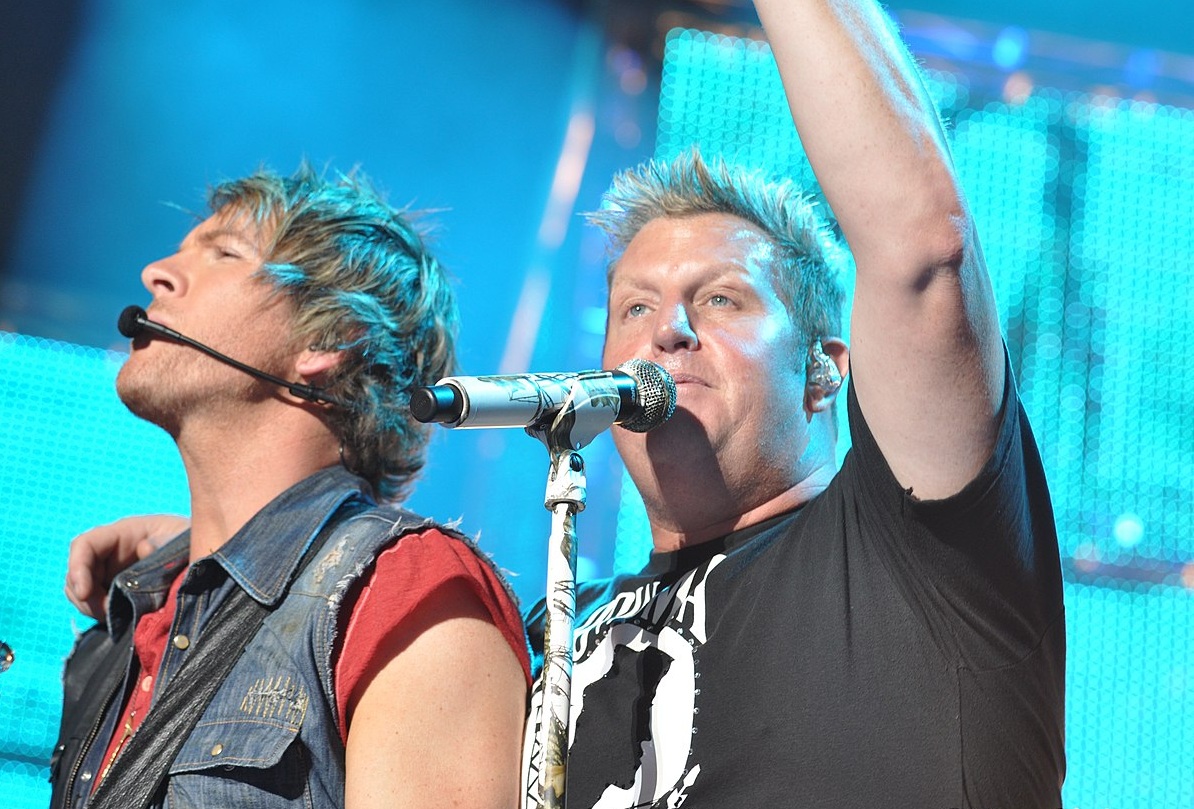 Joe Bielawa, CC BY 2.0, Wikimedia Commons
Joe Bielawa, CC BY 2.0, Wikimedia Commons
Rascal Flatts Lip-Syncing At The 2014 ACMs (Cont’d)
Appropriately-named lead singer Gary LeVox claimed he had “Vegas throat,” due to the area’s dry weather. He’d been trying to perform for a week leading up to the show, but eventually realized he wouldn’t be able and that he’d have to lip-sync. But the band had a good sense of humor about it, saying, "We've never done it before, and obviously we're not very good at it!”
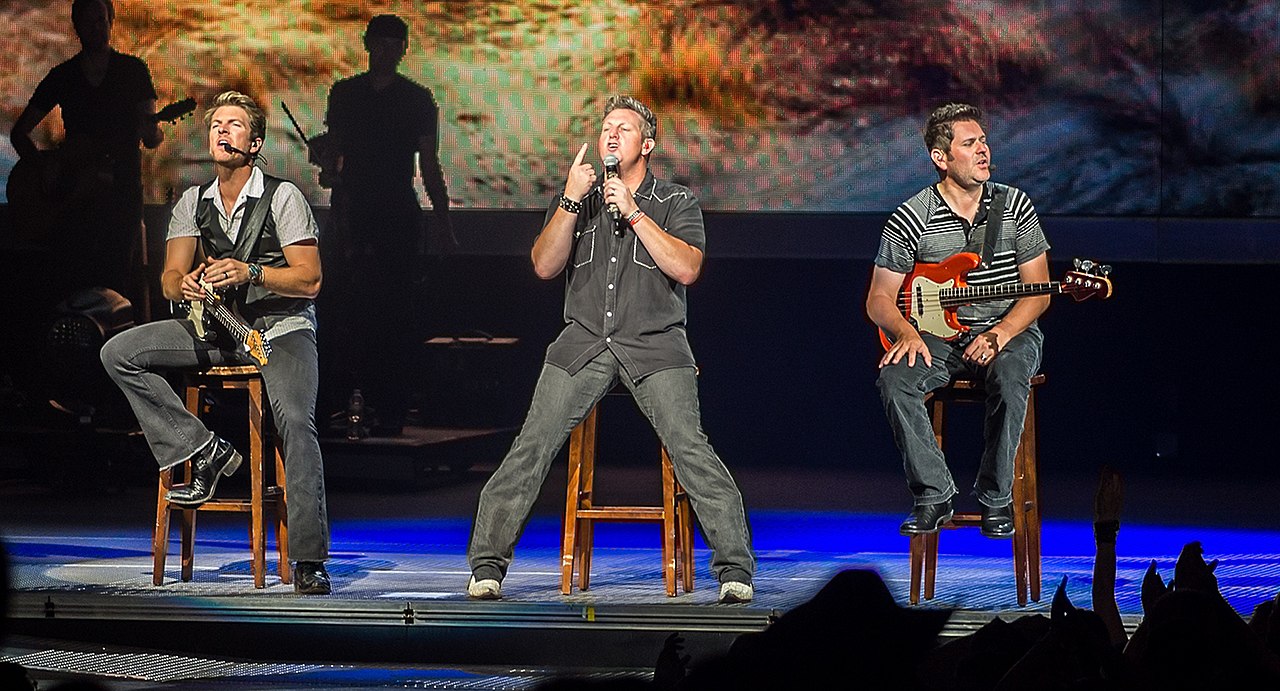 Bob James, CC BY 2.0, Wikimedia Commons
Bob James, CC BY 2.0, Wikimedia Commons
The Chicks Change Their Name
In 2020, inspired by the George Floyd protests and the Black Lives Matter movement, the Dixie Chicks announced they’d be dropping the “Dixie” and would henceforth be known as the Chicks. And they didn’t stop there, also releasing the protest single “March March,” which honored social justice movements.
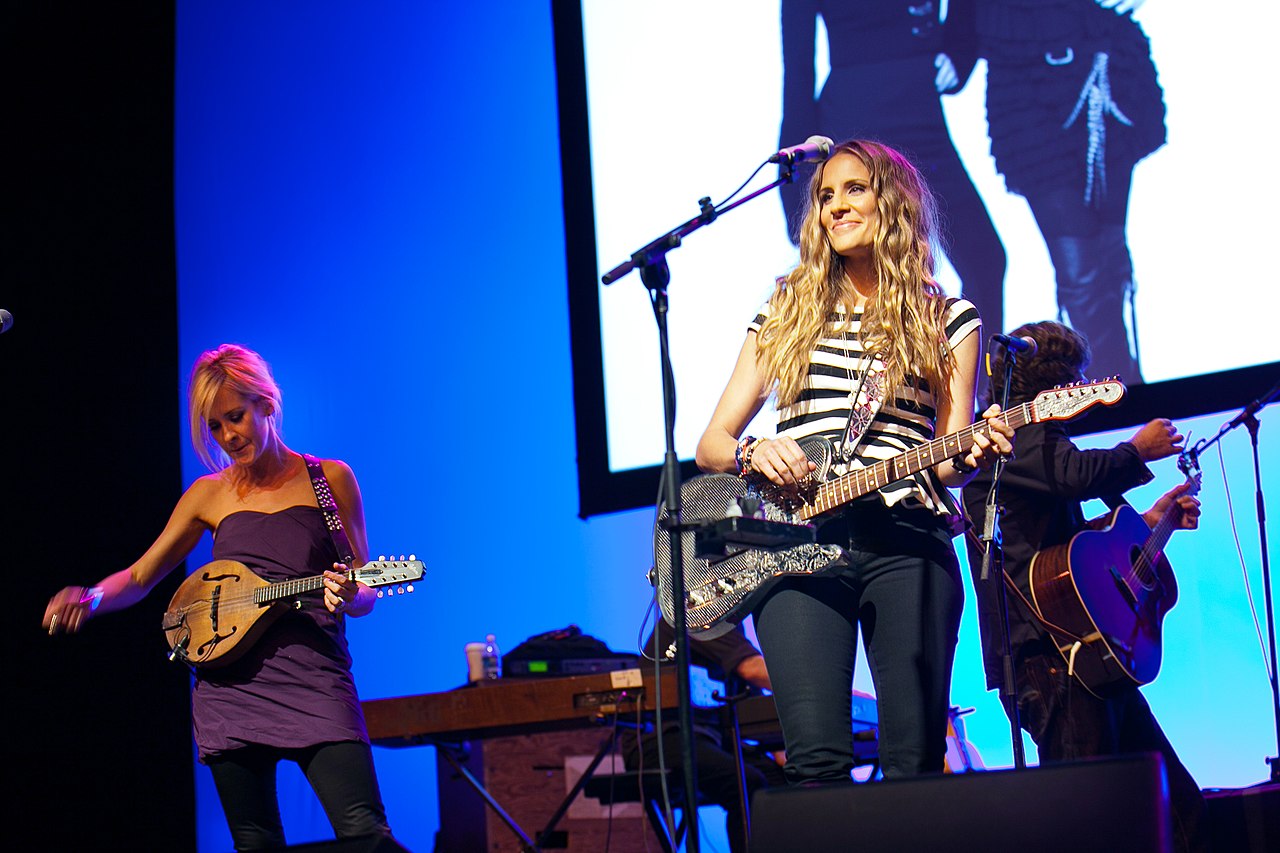 JD Lasica, CC BY 2.0, Wikimedia Commons
JD Lasica, CC BY 2.0, Wikimedia Commons
Elvis Presley’s Censored Hips
When Elvis Presley came out, the world didn’t quite know what to do with him. Country radio wouldn’t play him because his music sounded like it had been made by a Black artist, whereas R&B stations wouldn’t play him because they thought he was country. After an initial appearance—and backlash—on the Ed Sullivan Show in 1957, his third appearance was only filmed from the waist up, blocking viewers from those wildly gyrating hips.
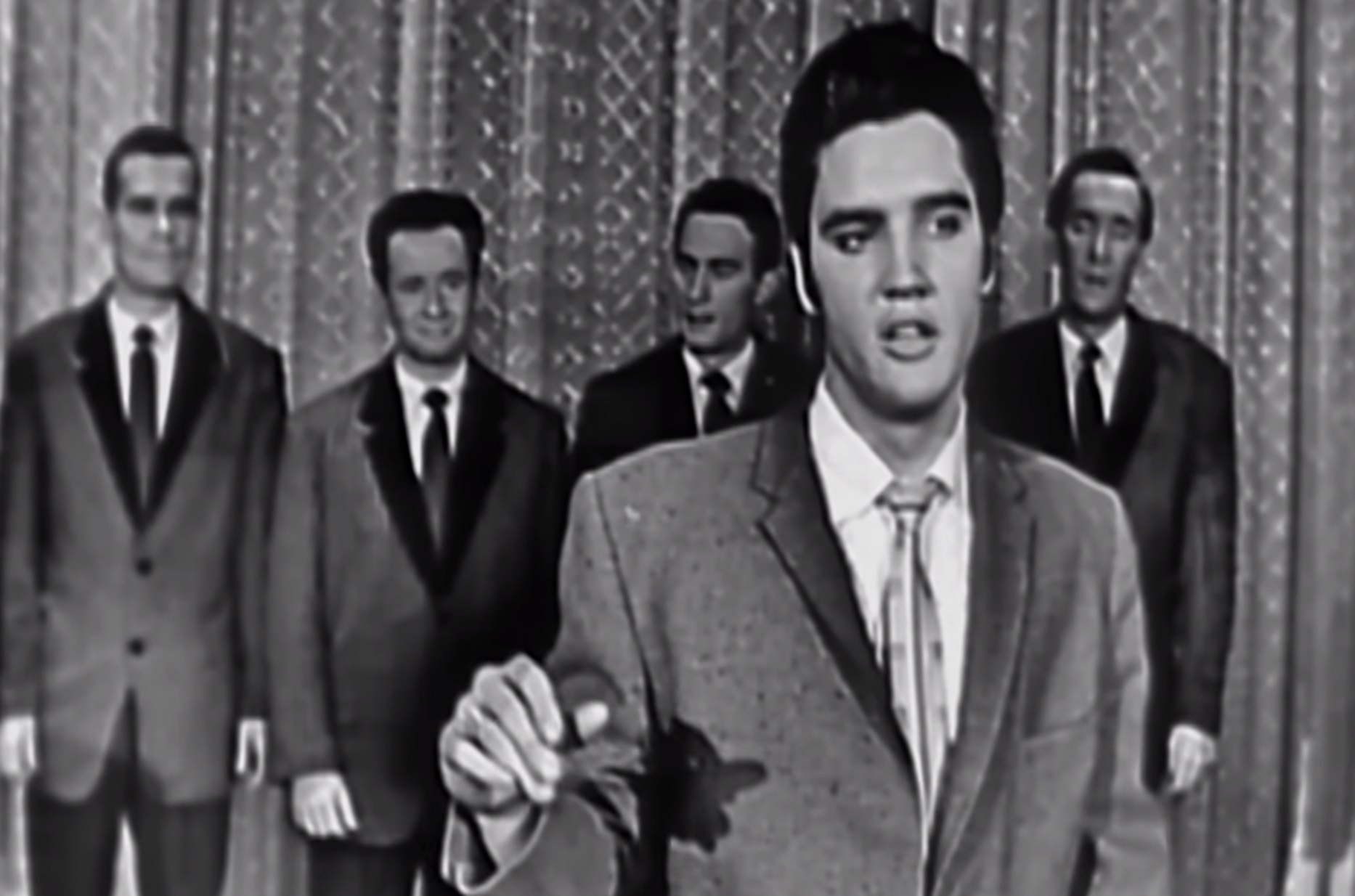 CBS Productions, The Ed Sullivan Show (1948-1971)
CBS Productions, The Ed Sullivan Show (1948-1971)
Alan Jackson’s Tribute To George Jones At The 1999 CMAs
Perhaps the organizers of the 1999 Country Music Awards should’ve consulted with the producers of the 1994 ACMs when booking Alan Jackson. Their first mistake came when they invited country legend George Jones to perform—but with the caveat that he had to truncate his new song “Choices” to just one minute. Jones refused and didn’t attend the awards.
Well, Jackson wasn’t about to stand for that disrespect of an icon.
Alan Jackson’s Tribute To George Jones At The 1999 CMAs (Cont’d)
When Jackson came on stage, he started playing the song “Pop A Top,” only to stop halfway through and break into “Choices,” leading to a standing ovation. And when he finished the song? He walked right out of the building. Jones later said: “What he did meant more to me than I could ever say. I was watching the show, and when he began singing ‘Choices,’ it moved my wife Nancy and me both to tears. He made a huge statement on my behalf, and on behalf of traditional country music, and didn’t worry about what the consequences might be”.
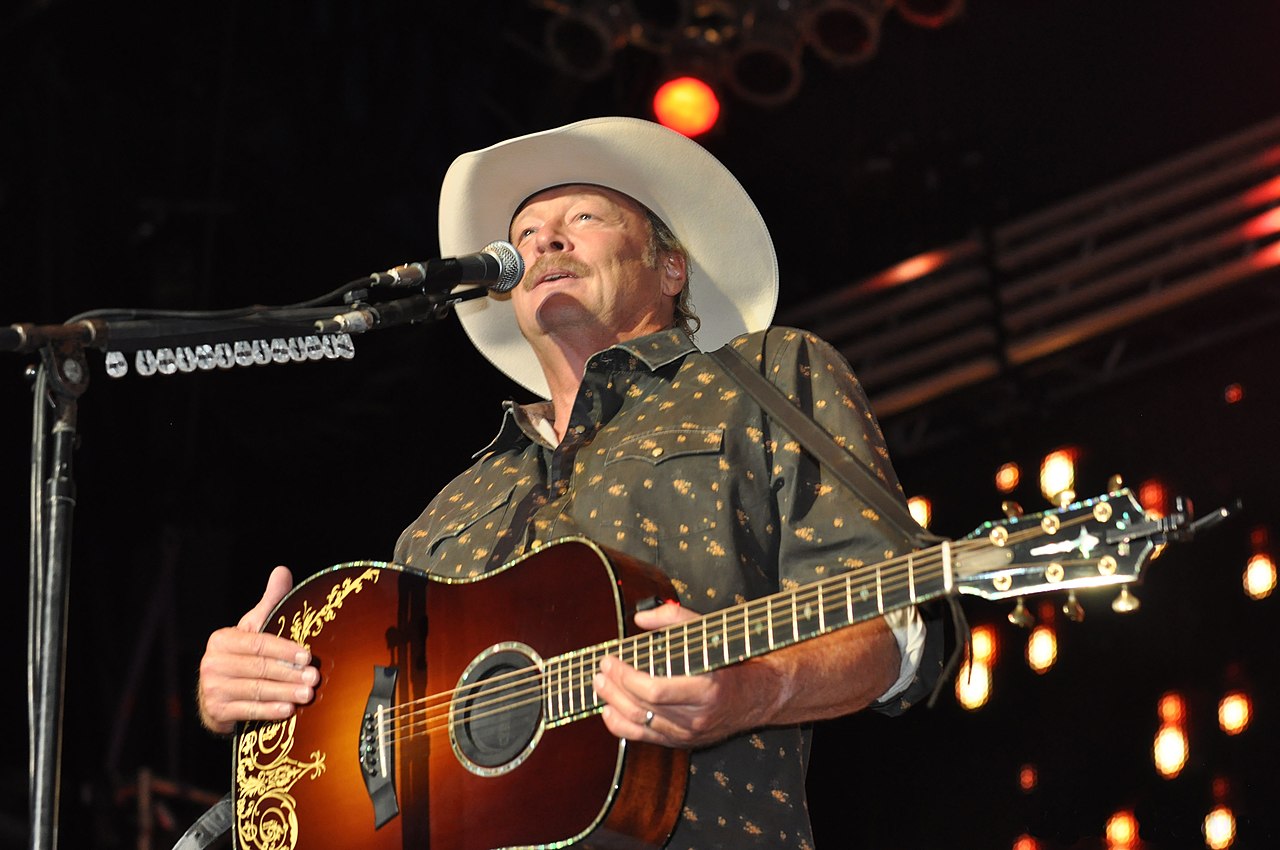 Joe Bielawa, CC BY 2.0. Wikimedia Commons
Joe Bielawa, CC BY 2.0. Wikimedia Commons
Randy Travis’ Arrest(s)
In 2012, police found a man in a parked car outside a church, swilling from a bottle of wine. When they arrived, they were shocked to find it was country star Randy Travis. Just a few months later, troopers in Grayson County, Texas, responded to reports of a completely nude man laying in the road. Once again, it was Travis. Later, they found his car, crashed into a construction zone.
Travis tried to block the release of the video footage of the incident, but after a long legal battle, a judge said it didn’t violate his right to privacy. Travis later blamed a combination of alcohol and the sleeping pill Ambien for the incident.
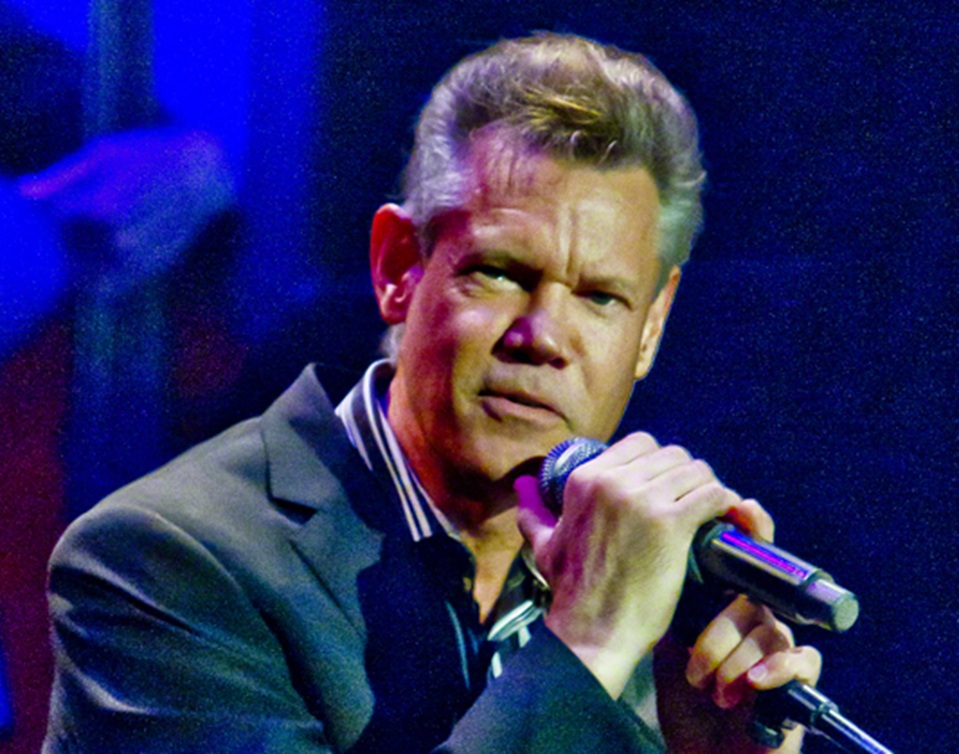 LGPhilpot, CC BY 3.0, Wikimedia Commons
LGPhilpot, CC BY 3.0, Wikimedia Commons
“Tomato-Gate”
In 2015, radio personality Keith Hill claimed that female artists couldn’t garner ratings on country radio, because most listeners were female and wanted to listen to male artists. He doubled down on the statements, calling female artists “tomatoes” to the men’s “lettuce” in some sort of country music “salad”. Understandably, a number of female artists took umbrage, including Martina McBride, Miranda Lambert, and Kacey Musgraves.
 Andy Witchger, CC BY 2.0, Wikimedia Commons
Andy Witchger, CC BY 2.0, Wikimedia Commons
LeAnn Rimes’ Love Triangle
A little blip in the personal life—especially an adultery scandal—is pretty standard stuff in the country music industry. However, to understand how and why LeAnn Rimes’ love triangle was such a big deal, you have to go back to her early career. When Rimes burst onto the scene, she was just 13, and she was an instant star. It was hard for people to see her as anything but the little girl who sang “Blue,” but she was about to blow up everyone’s expectations.
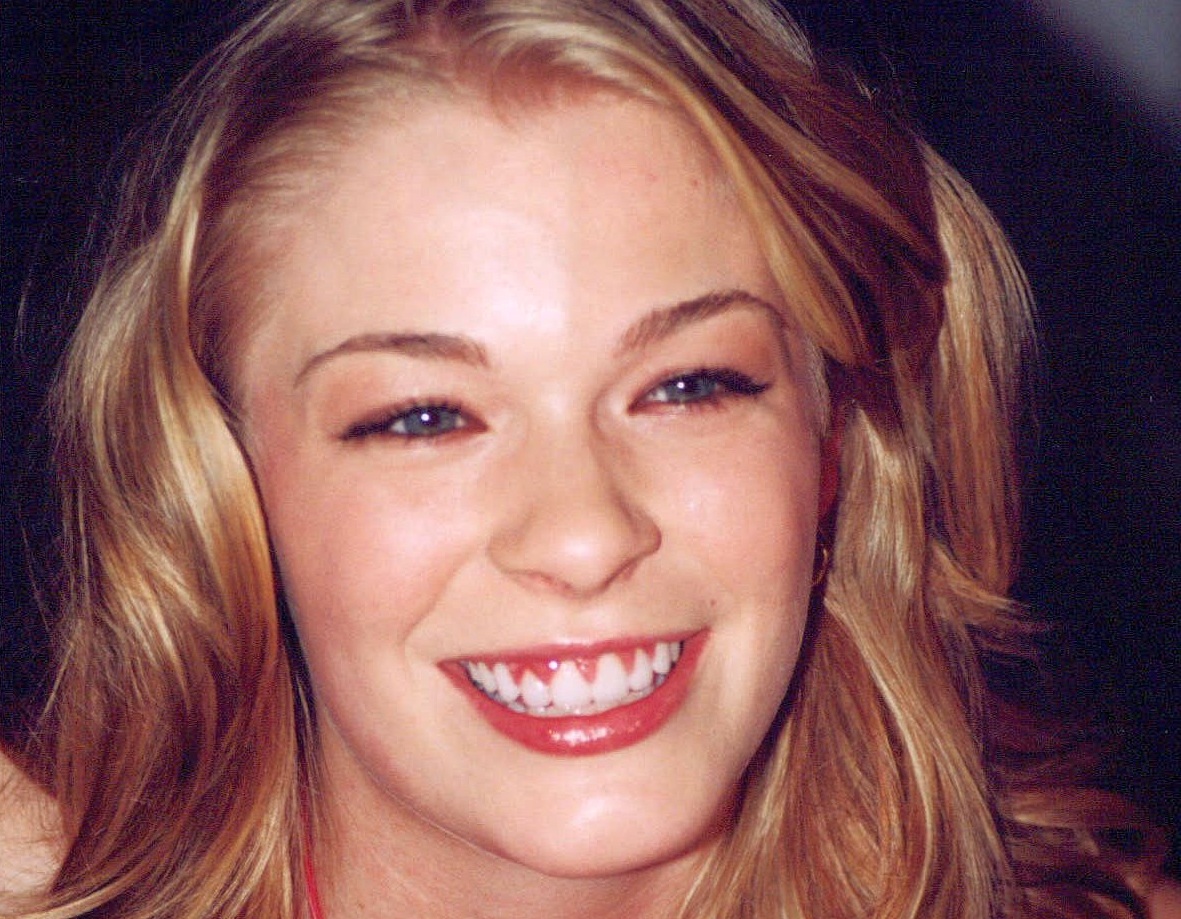 John Mathew Smith, CC BY-SA 2.0, Wikimedia Commons
John Mathew Smith, CC BY-SA 2.0, Wikimedia Commons
LeAnn Rimes’ Love Triangle (Cont’d)
The innocent and “pure” image continued with a marriage at the age of 19 to dancer Dean Sheremet—but her affair with married soap star Eddie Cibrian left her splashed across tabloid pages. Though the pair later divorced their partners, wed, and are still together, her image was never quite the same.
Beyoncé And The Chicks At The 2016 CMAs
Beyoncé began breaking into the world of country music with her 2016 song “Daddy Lessons,” and that year, she took the stage at the CMAs with the Chicks. Many fans loved the performance—but it did tick off some of country’s old guard, including Travis Tritt, who went on a long rant on Twitter, asking when the BET Awards would invite a country artist, and sarcastically promising to cover “Single Ladies”.
You May Also Like:
The Greatest Country Artists of All Time


